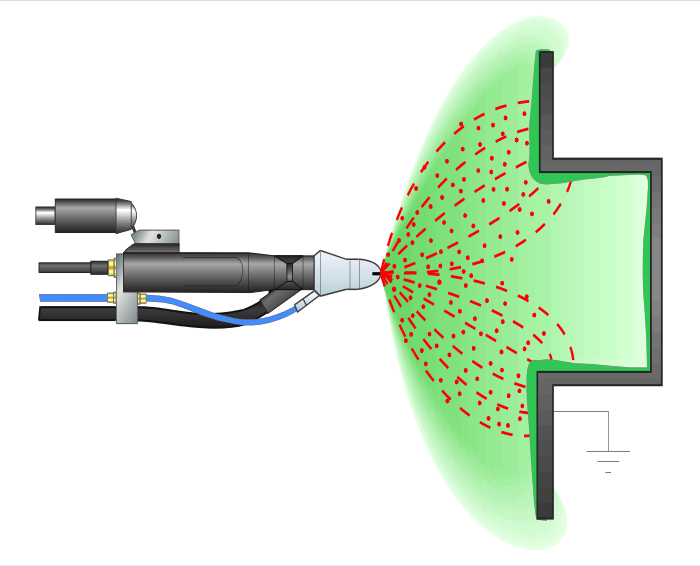What is Faraday Cage Effect?
The “Faraday cage effect” occurs when the inner recesses and corners of a charged substrate do not have a charge, and the charged powder particles create resistance, making it difficult to coat these areas. There are ways to overcome the Faraday cage effect and better coat inner corners and odd part geometries.

Overcoming the obstacles of the electrostatic process:
- Blast powder into recesses
- Increase the powder flow rate
- Maximize the gun to part distance
- Use slotted tip to concentrate the spray
These methods can use excess powder, have higher film thicknesses than desired, and could result in an uneven film build.
Using the electrostatic process:
- Finesse the powder into recesses
- Decrease powder gun flow rates
- Reduce gun voltage to 40-60 Kv
- Maintain gun to part distance of about 8-10 inches
- Use slotted tip to concentrate spray
- Approach recess at an obtuse angle
These methods could result in a slower application time.
Spraying in the Faraday Cage: spraying at the recesses of a part at an obtuse angle can help to apply the coating properly.
- Reduces air turbulence
- Allows deeper penetration
- Minimizes early back ionization
- Utilizes more lines of force






























































